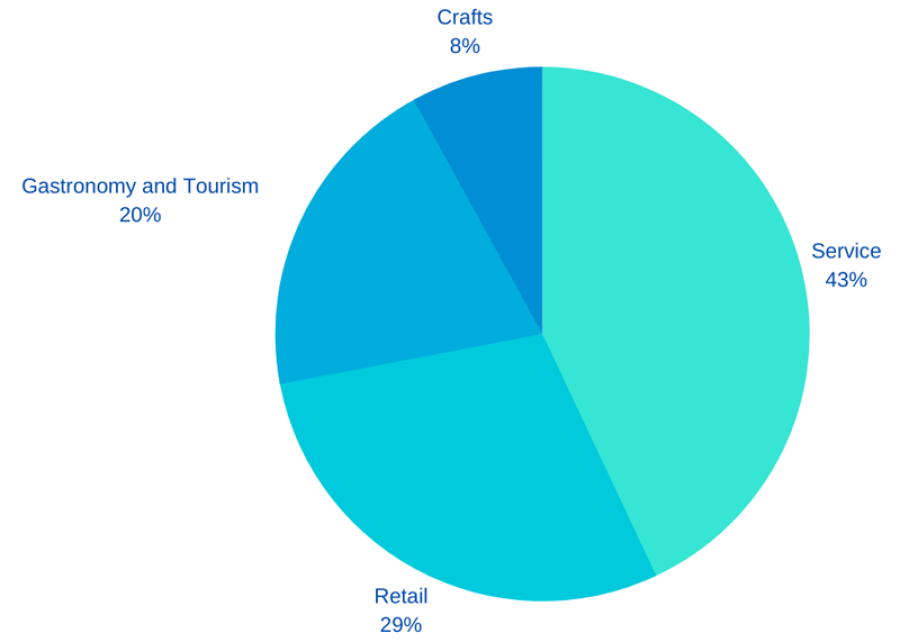Franchising in Germany
Your franchise on the German market!?

Numbers and Statistics
In 2019, there were more than 171,000 franchise businesses in Germany. In the same year the number of franchise partners rose to over 133,000. The steady upward trend development shows that the franchise industry in Germany still has a lot of room for growth.
In 2019, around 1,000 franchise systems surveyed nationwide achieved a total turnover of €129 billion. If you compare this with an annual turnover of 22.7 billion in 2001, the rapid growth of this branch of the economy becomes even clearer. Based on these figures, the franchise industry in Germany has increased its total turnover by over € 100 billion within 18 years.
According to the German Franchise Association, over 40 percent of the companies surveyed expanded with existing franchisees in 2017. Even if most of the franchise systems active on the German market come from Germany or Austria, the market also offers great opportunities for foreign franchisors. The success of companies like McDonalds or REMAX has shown that you can be very successful in Germany with the right concept in the right sector. A request from the German Franchise Association showed that the estimated percentage of American franchise companies in Germany today is between 15% and 17%.
Overall, franchise companies in Germany are active in 16 different industries. The currently most popular industrial sector seems to be the service sector. Around 43% of all franchise concepts in Germany were service companies in 2019. This number has increased compared to figures from previous years. But there was also an increase in the retail sector.
Most popular Industry sectors in Germany
(As of 2019)

| Service | 43% |
| Retail | 29% |
| Gastronomy and Tourism | 20% |
| Crafts | 8% |
Other statistics show that in some sectors the increasing demand cannot be met by the current supply in the future. Due to an aging population and chronic lack of funds in the German health system, for example, the demand for alternative care and nursing services (both outpatient and inpatient) will skyrocket in the next 20 years. For franchisors with well-running concepts in this area, they should already think about a possible expansion to Germany.
The potential is considerable: estimates assume that by 2050 the number of people who will be dependent on professional care services will have risen to as much as 4.6 million.
Business plan and financing
Even with these bright future prospects, there is still the question of financing.
Depending on the franchising model, between EUR 1,000 and EUR 200,000. Quite often, the franchisee also has to invest in fixtures and fittings and needs an initial inventory of goods. Here the required investment varies depending on the business model and concept.
Nevertheless, franchising is rather limited compared to a "normal" business start-up. It doesn’t work without a business plan. In the business plan, all economic, legal and financial aspects of a newly founded company are planned. This includes detailed financial planning that includes investment and capital requirements, planned sales and costs and the intended financing. This proves that the planned start-up is also economically viable.
The cultural differences between the individual countries should also not be ignored when planning a company expansion. 8% of the franchise businesses currently active in Germany belong to the traditional trade (e.g. carpenters, carpet layers, etc.). Compared to the proportion of craft franchise businesses in other European countries, this number seems surprisingly low. The background to this, however, is the fact that these professions in Germany are subject to strict craft and training regulations. This of course significantly reduces the number of potential franchisees, as there are certain requirements in the German training system that must be met before you can start your own business with a certain craft business (e.g. specialist training or, in some cases, the master craftsman's certificate). The franchisor should therefore inform himself in advance about the existing guidelines and regulations in order to avoid problems later.
References:
Statistics were taken from the statistics database www.statista.de














